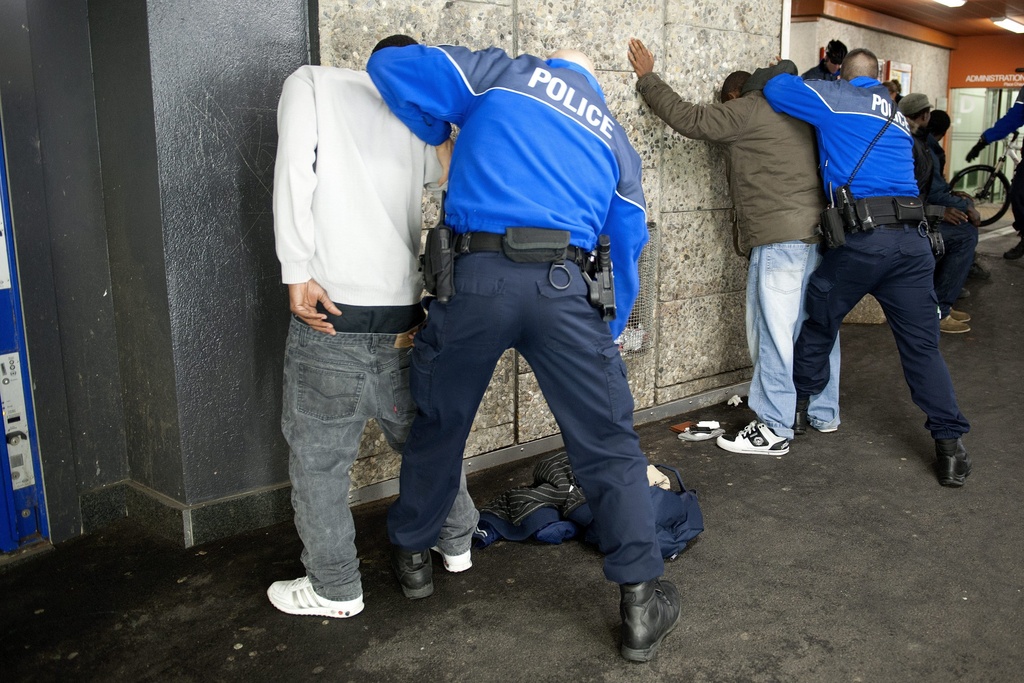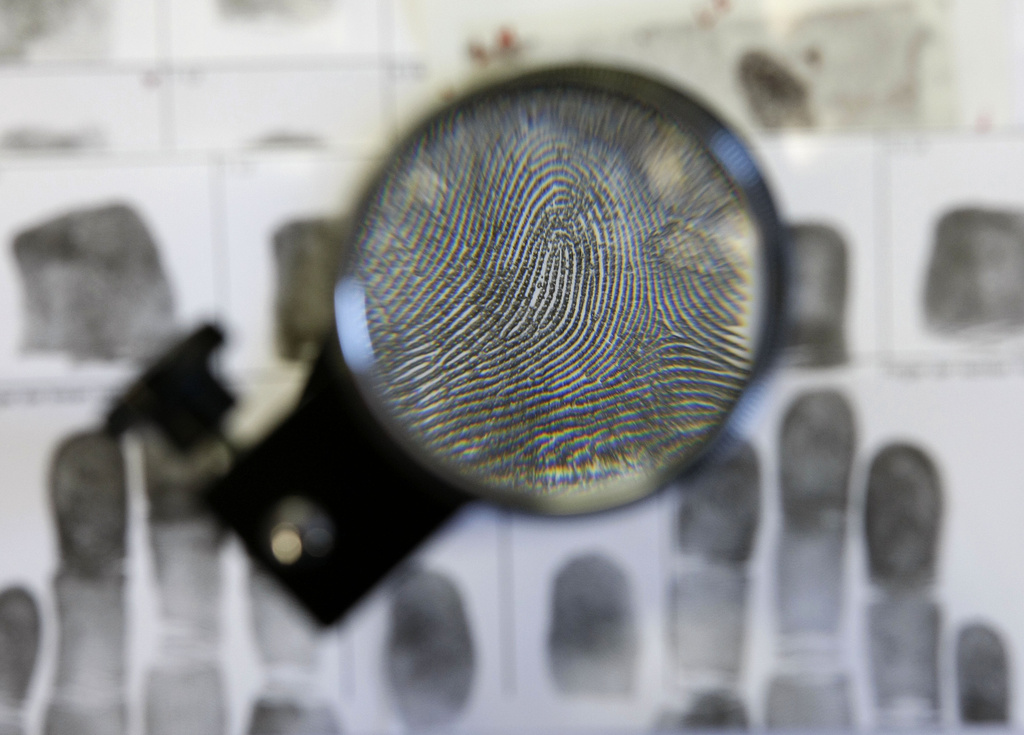Call for tougher penalties to combat crime rise

The government is being called on to tighten the law to deter repeat criminal offenders following revelations of a six per cent crime increase nationally last year.
According to the Federal Statistics Office, cases of theft increased nationally by 16 per cent. However, despite the overall rise in crime in 2011, the number of minors charged with criminal offences was down by 21 per cent, while violent crime dropped by seven per cent and sex crimes were down by three per cent.
Cantonal statistics also released on Monday show border regions in the west of the country were particularly affected by crime such as pickpocketing, burglary, car-theft and bag snatching.
In a joint statement, the police ministers of cantons Vaud and Geneva said the penal code should be adapted to act more as a deterrent to repeat offenders. They also called on the government to support cantons by signing asylum readmission accords to facilitate the expulsion of troublemakers.
“[We] have noticed that our cantons are particularly exposed in relation to cross-border crime and offences committed by people without a valid visa,” police ministers Isabel Rochat of Geneva and Jacqueline de Quattro of Vaud said.
“[We] would like the federal authorities to look without delay at the scale of penal sanctions. Some are not adapted to the evolution of criminality and do not have a necessarily dissuasive effect on offenders.”
Joining forces
Rochat and de Quattro said that in response to rising cross-border crime, collaboration between police and security forces would be intensified.
They also called for more intensive discussions with the government on the engagement of border guards in fighting cross-border crime.
In canton Geneva, home to the European headquarters of the United Nations, local crime rose 18 per cent to 72,821 offences compared with 2010 – a total significantly more than the national rise.
Although violent and sexually related crimes were down nine and seven per cent respectively in the canton, cases of theft rose 29 per cent with burglaries up 17 per cent – up to 50 a day – pickpocketing up 43 per cent, bag-snatching up 28 per cent and car theft up 45 per cent.
A similar story was reported in neighbouring Vaud where robberies jumped 34 per cent and cases of pickpocketing skyrocketed by 103 per cent on 2010.
“These statistics are worrying. The current situation is unacceptable and I’m no longer prepared to tolerate it,” Rochat told reporters on Monday.
“The burglary phenomenon doesn’t just affect Geneva but the entire Lake Geneva region including France,” Geneva police chief Monica Bonfanti told swissinfo.ch.
Foreign nationals
Across the country, offences under the law on foreign nationals – which covers offences such as illegal entries and stays – rose ten per cent. The statistics office said this was due to a 15 per cent rise in the number of illegal entries or people staying in the country without a valid visa.
Closer analysis shows that Geneva has a specific problem with some 400 repeat-offenders from North Africa who are asylum-seekers with temporary residence, whose application has been rejected or who are illegal immigrants.
Geneva police said they were responsible for 32 per cent of pickpocketing and 40 per cent of bag-snatching cases.
“Today we face three phenomena: gangs from the Balkans, in particular Romania, who were responsible for a wave of burglaries last autumn and young Roma from the Balkans based in Milan who carry out burglaries between Italy and Paris,” said François Schmutz, head of Geneva’s criminal investigation department.
“This is difficult to combat as they are mostly minors and reinsertion measures are badly adapted. The third is citizens from North Africa who have settled illegally in Geneva who were initially very active in street crime and who continue to be active but have been strengthened with the arrival of people following the Arab Spring and have started to get involved in burglaries.”
Nationwide
Meanwhile, cantons in the eastern part of the country recorded similar statistics to the national figures. Police in canton St Gallen reported car theft rose 116 per cent in 2011, although overall crime rates remained steady year-on-year at 28,532 offences.
Crimes committed by minors declined from 1,070 in 2010 to 1,003 in 2011 in St Gallen, where the crime rate came in at 49 crimes per 1,000 inhabitants compared with a national average of 71 per 1,000 people.
Basel City reported an 11 per cent increase in crime under the penal code, with cases of theft accounting for 73 per cent of offences. In a departure from national statistics, violent crime increased eight per cent.
In canton Schwyz, overall crime declined 5.5 per cent to 6,240 offences with the number of crimes committed by minors declining 14.3 per cent. Theft increased by 161 cases, or 12.1 per cent to 1,480 offences.
In 2011, the police crime statistics recorded 692,954 criminal offences.
Compared to the previous year, penal code offences increased by six per cent (+31,980).
This increase was particularly striking for theft (up 16 per cent to 29,787), while offences against physical integrity and sexual integrity were down seven (-1842) and three per cent (-200) respectively.
Also on the rise were drug-related offences (up two per cent, +2038) and cases related to the country’s foreigners legislation, which went up ten per cent (+2792). Two-thirds of these cases are related to illegal entries or residencies, while 15 per cent are related to illegal work practices.
There were fewer indictments in 2011 (-1.9 per cent or 77’836 cases), but this mostly due to a lower number of cases involving juveniles (down over a fifth to 10’648). These cases are often related to shoplifting, vandalism, theft or assault.
(With input from Simon Bradley)

In compliance with the JTI standards
More: SWI swissinfo.ch certified by the Journalism Trust Initiative












You can find an overview of ongoing debates with our journalists here . Please join us!
If you want to start a conversation about a topic raised in this article or want to report factual errors, email us at english@swissinfo.ch.